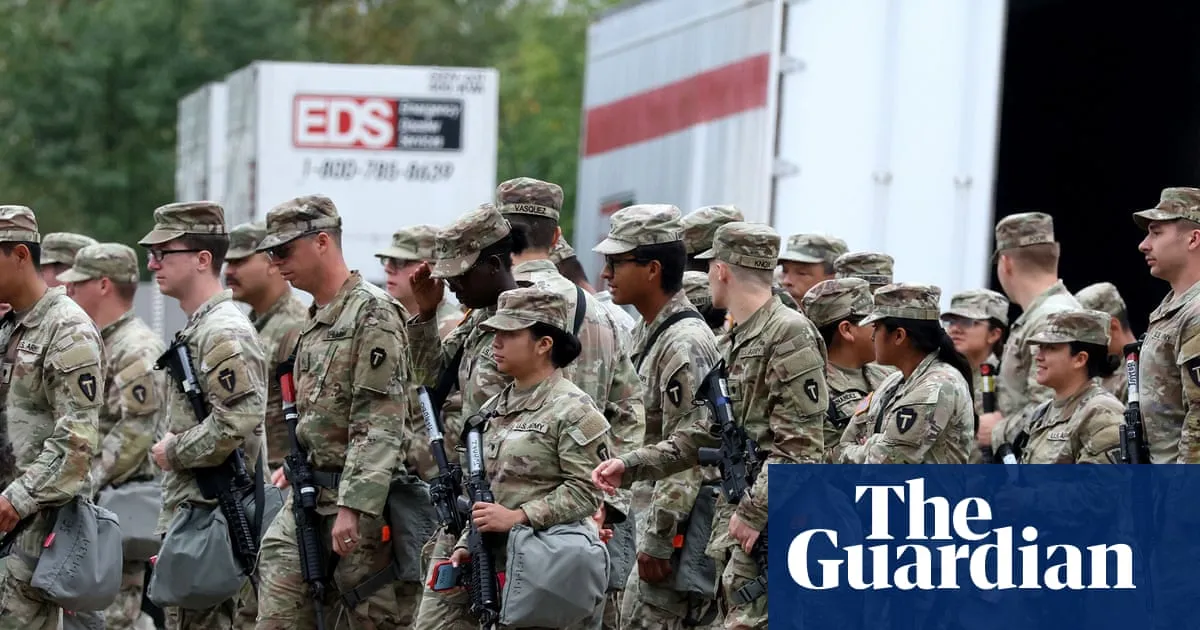
The arrival of Texas National Guard troops in the Chicago area marks a significant escalation in President Donald Trump's ongoing crackdown on the city. This military presence comes during a period of heightened immigration enforcement in Chicago, which has seen increased tensions and violent altercations, particularly in the suburb of Broadview, where law enforcement has been filmed deploying tear gas and pepper spray against protestors.
The deployment of troops follows a ruling by U.S. District Judge April Perry, who declined to block the military from entering the city despite a pending lawsuit filed by the state of Illinois and the city of Chicago against the Trump administration. This lawsuit, spearheaded by Illinois Attorney General Kwame Raoul, aimed to stop the federal government from enlisting the national guard or sending troops from other states, including Texas, "immediately and permanently."
After Perry's ruling, the troops were mobilized on Monday, with multiple news outlets, including the Chicago Tribune and New York Times, confirming their ongoing presence in the Chicago area by Tuesday.
In response to the escalating situation, Chicago Mayor Brandon Johnson signed an executive order that prohibits Immigration and Customs Enforcement (ICE) agents from operating on city-owned properties. This marks the third such order aimed at limiting the power of ICE agents in Chicago since Trump signaled the deployment of federal troops. Johnson emphasized, "City property and unwilling private businesses will no longer serve as staging grounds for these raids," highlighting the need for checks and balances against federal actions.
Johnson further asserted, "Nobody is above the law … if Congress will not check this administration, then Chicago will." His comments come amidst accusations from the White House, which accused the mayor of "aiding and abetting criminal illegal immigrant killers, rapists, traffickers, and gang bangers," according to reports from Newsweek.
Illinois officials have long condemned Trump’s plans for a federal takeover. Governor J.B. Pritzker has been vocal in his opposition, urging citizens to "stand up" against the federal intervention during a CBS News interview in September. Pritzker stated, "Any kind of troops on the streets of an American city don’t belong unless there is an insurrection, unless there is truly an emergency." He added, "I’m going to do everything I can to stop him from taking away people’s rights and from using the military to invade states."
Mayor Johnson has also consistently condemned the proposed military intervention. During a Labor Day rally, he declared, "We’re going to defend our democracy in the city of Chicago. We’re going to protect the humanity of every single person in the city of Chicago."
Trump's intention to escalate federal intervention in Chicago aligns with his broader strategy of targeting Democratic-led cities for expanded enforcement of immigration laws. His administration has previously attempted to deploy federal troops to cities like Portland, but recent judicial rulings have blocked these efforts. Oregon Governor Tina Kotek condemned any military intervention in her state as a "threat to our democracy" and a "wake-up call" for other state officials.
In June, the Trump administration sent national guard troops to Los Angeles, where ICE agents conducted large-scale raids. Additionally, in August, thousands of national guard troops and federal agents were deployed to Washington, D.C., as part of an unprecedented law enforcement initiative. Trump has justified these actions as necessary for enhancing immigration enforcement and combating crime. However, local and national Democratic leaders have pointed out that crime rates are generally on the decline.